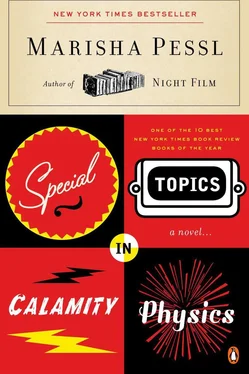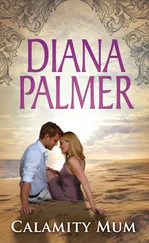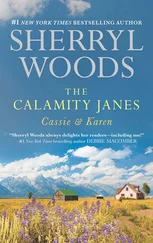“Can you tell us about the man who died?” Leulah asked suddenly, without looking Hannah in the eye. “I don’t mean to be nosy and I understand if you don’t want to talk about it. But I think I’d sleep better if I knew a little about him. What he was like.”
Rather than replying in a bleak voice that, in light of our cavalier betrayal, it certainly was nosy and none of her business, after a thoughtful stare at the dessert menu (her eyes fell somewhere between the Passion Fruit Sorbet and the Petit Fours), Hannah drained the rest of her wine and began a surprising and quite captivating exposition of Smoke Wyannoch Harvey: The Life .
“I met him in Chicago,” she said, clearing her throat as the waiter vaulted forth to fill her glass with what little was left in the wine bottle. “The Valhalla chocolate cake with the…”
“White chocolate ice cream and caramel crème sauce?” he chirped.
“For everyone. And can I see your list of brandies?”
“Certainly, madam.” He bowed and retreated into his peachy grassland of round tables and gold chairs.
“God. It was ages ago,” Hannah said. She picked up her dessert spoon and began to somersault it in her fingers. “But, yes. He was a remarkable man. Excruciatingly funny. Generous to a fault. A great storyteller. Everyone wanted to be around him. When Smoke— Dubs, I mean, everyone important to him called him Dubs — when Dubs told a story you laughed so hard your stomach hurt. You thought you’d die.”
“People who tell a good story are amazing,” said Leulah sitting up eagerly in her chair.
“The house alone was straight out of Gone with the Wind . Enormous. White columns, you know, and a long white fence and big magnolias. Built in eighteen-something. It’s in southern West Virginia, outside of Findley. He called it Moorgate. I–I can’t remember why.”
“Have you been to Moorgate?” asked Leulah breathlessly.
Hannah nodded. “Hundreds of times. It used to be a tobacco plantation, four thousand acres, but Smoke only has a hundred and twenty. And it’s haunted. There’s an awful story about the house — what was it, I can’t remember. Something to do with slavery…”
She tilted her head, trying to remember, and we leaned forward like first graders during Story Hour.
“It was just before the Civil War. Dubs told me all of this. I guess the master’s daughter, beautiful, the belle of the county, she fell in love with a slave and became pregnant with his child. When it was born, the master had the servants take it down to the basement and put it in the furnace. So every now and then, during thunderstorms, or on summer nights when there were crickets in the kitchen — Smoke was very specific about the crickets — you can hear a baby crying, way, way down in the basement. In the walls. There’s also a willow tree in the front yard, which had supposedly been used for beatings, and if you go up to the trunk, carved faintly into the bark are the initials of that girl and the slave who loved each other. Dorothy Ellen, his first wife, hated the tree, thought it was evil. She was very religious. But Smoke refused to cut it down. He said you couldn’t pretend the terrible things in life didn’t happen. You can’t clean it up. You keep all the refuse and the scars. It’s how you learn. And try to make improvements.”
“That’s one old willow tree,” Nigel said.
“Smoke was a person with a sense of history. Do you know what I mean?” She happened to be looking at me with a very intense look, so I automatically nodded. But in truth, I did know what she meant. Da Vinci, Martin Luther King, Jr., Genghis Kahn, Abraham Lincoln, Bette Davis — if you read their definitive biographies, you learned that even when they were a month old, cooing in some wobbly crib in the middle of nowhere, they already had something historic about them. The way other kids had baseball, long division, Hot Wheels and hula hoops, these kids had History and thus tended to be prone to colds, unpopular, sometimes plagued with a physical deformity (Lord Byron’s clubfoot, Maugham’s severe stutter, for example), which pushed them deep into exile in their heads. It was there they began to dream of human anatomy, civil rights, conquering Asia, a lost speech and being (within a span of only four years) a jezebel, a marked woman, a little fox and an old maid.
“He sounds dreamy,” said Jade.
“Sounded,” said Nigel very quietly.
“So were you two, uh…?” asked Charles. He let the sentence make its own way into that renowned motel bed with sandpaper sheets and proverbial shrieking mattress.
“He was a friend, ” Hannah said. “I was too tall for him. He liked women who were little dolls, porcelain baby dolls. All of his wives, Dorothy Ellen, Clarisse, poor Janice. They were all under five feet.” She giggled girlishly — a much-welcomed sound — sighed and rested her head in her hand, the pose of an unknown woman one came across in some second-hand biography, in a black-and-white photo accompanied by the caption, “At a Cuernavaca party, late 1970s.” (It wasn’t her biography, but the portly Nobel Prize — winner she sat next to; but so arresting were the dark eyes, the sleek hair, the strict expression, one wondered who she was, and didn’t want to keep reading when there was no other mention of her.)
She talked on and on about Smoke Harvey, through the warm Valhalla chocolate cake, through the selection of English Farmhouse Cheeses, through two piano renditions of “I Could Have Danced All Night.” She was like Keats’ Grecian Urn left under a running faucet, overflowing, unable to stop herself.
The waiter returned her credit card and she still didn’t stop talking. Frankly, at this point, it made me a little edgy. As Dad said famously after his first date with June Bug Betina Mendejo in Cocorro, California (Betina managed to air her every piece of Dirty Linen at Tortilla Mexicana, telling Dad how her ex-husband, Jake, stole everything from her, including her Pride and Ego): “Funnily enough, it is the subject one dreads talking about at length one ends up talking about at length, often without the slightest provocation.”
“Anyone want the last selection of English Farmhouse Cheese?” asked Nigel, pausing only for a second before helping himself to the last selection of English Farmhouse Cheese.
“It was my fault,” Hannah said.
“No, it’s wasn’t,” said Charles.
She didn’t hear him. Sticky redness had oozed into her face. “I invited him,” she said. “We hadn’t seen each other in years, exchanged a few calls, sure, but, you know, he was busy. I wanted him to come to the party. Richard, whom I work with at the shelter, had invited some of his friends from all over the world — he’d worked in the Peace Corps for thirteen years, still keeps in touch with a lot of the people he worked with. An international crowd. It was supposed to be fun. And I sensed Smoke needed a break from things. One of his daughters, Ada, had just gotten a divorce. Shirley, another daughter, had just had a baby and named it Chrysanthemum. Can you imagine, a person with the name Chrysanthemum? He called me up, howling about it. It was the last thing we talked about.”
“What’d he do for a living?” asked Jade quietly.
“He was a banker,” Nigel said, “but he also wrote a book, didn’t he? Devil’s Treason or something.”
Again, Hannah didn’t seem to hear. “The last thing we talked about was chrysanthemums,” she said to the tablecloth.
The darkness in the fan-shaped window had soothed the room and the gold chairs, the fleur-de-lys wallpaper; even the dowager chandelier relaxed a little, like a family finally rid of an affluent guest and they could now squash the seat cushions, eat with their fingers, remove their stiff, uncomfortable shoes. The kid at the piano was playing “Why Can’t a Woman Be More Like a Man,” which happened to be one of Dad’s favorites.
Читать дальше












